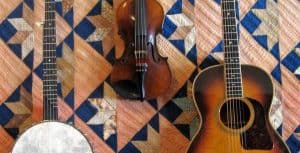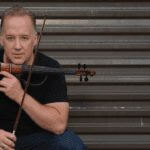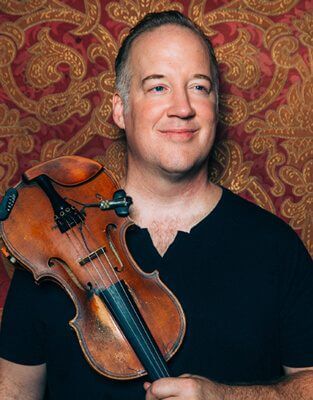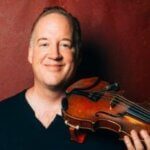Hello all, and welcome to my new and improved blog. Thanks for your patience as I get my feet wet with the new technology.
Anyway, my post didn’t make the grade for the witty community, mostly because my video sucked, but the post is still kind of cool.
Hope you like it.

How Do You Like Your Eggs?: A Jazz Musician’s Travelogue
As a jazz violinist, I travel around the world most of the year to perform with other musicians in clubs, theaters, and festivals. We usually get a free breakfast at the hotels we stay in, especially outside of the United States. We eat lots of eggs.

While you’re probably familiar with the varieties in the U.S.– everything from Bob Evans’-style fried or scrambled eggs (my personal favorite) to Waffle House’s (drippy and greasy), or the cheap hotels’ “continental breakfasts” (pre-made, preformed, plastic egg squares)–you may not be as familiar with the kinds of preparations I run into overseas.
In Germany the eggs are more often scrambled, but too watery and not cooked enough. In Japan you get them cold and scrambled with sugar. In Spain they are made as Tortilla Espaniola (Spanish Omelets), including egg, cheese, potato, onions, and peppers. The varieties of Spanish omelets are pretty diverse themselves –sometimes too dry, sometimes too wet, sometimes with potatoes, cold, hot, etc… The best I have had in Spain were always my friends’ homemade omelets.
I can’t remember all of them- Norway, Holland, France–oh sure, France is fancy. They make good eggs I guess, although come to think of it, it’s more like quiche, french toast, or other egg stuff with bread — never “just eggs”. Then there’s Portugal, Canada, China, Singapore—although Singaporeans eat spicy noodles, fish, and things like that for breakfast.
Last month I visited Russia and it was one of those trips that our band leader calls a “Jungle Drop” because we have no idea what the “hospitality” is going to be like. Drop into the jungle and deal with whatever we get. Translation was a real issue there, so in Urtrusk, Siberia, where the menu had two choices of eggs– “omelet of eggs and stuff” and “eggs fried with tomatoes”– we would order one and invariably get the other. Krasnador, Russia had a menu including eggs, but you couldn’t get a boiled egg unless you waited until after 1 p.m.
I’m used to going places where there are different cultural norms surrounding service. Some places like my hometown of Columbus, Ohio, are just perfectly friendly. They abide by rules like “the customer’s always right”, and they smile and seem to genuinely want to help. In Moscow, however, I asked for a cappuccino from the barmaid and the bartender next to her shook his head, No. Unbelievable! He just said that he wouldn’t do it and could care less, end of story. Eventually I got it. Apparently people in Russia just have a real hard time motivating their workers.
I had a similar experience in Spain, where I was actually refused a cappuccino prior to a meal.
Except that in Russia, it wasn’t clear whether they understood but refused, or if they really just didn’t understand. I think they understand, but pretend not to.
No matter where we go, no matter what food we eat, we always play music. Somewhere there’s a concert scheduled, in some kind of venue, and we manage to get there, get some kind of sound, and somehow, perform for an audience.
Forget the word jazz because it really doesn’t mean anything anymore, or it could mean whatever you want it to. I might as well say I play in a rock band or simply, I perform music. The places and people I see, and the ways they invariably react to the music in spite of such strange sound environments, have all convinced me that people will just respond to the energy on stage, the simple fact of any stimulus coming at them. Sure, I’m a highly trained violinist with an original voice, but people don’t get all that—it seems they just want to see someone getting off on stage, which our band in Russia definitely did.
Bill Evans is our bandleader. He played saxophone with Miles Davis, Herbie Hancock, John McGlaughlin, and he’s a legend in the jazz world, especially in Europe and overseas where people actually appreciate jazz like it’s an exotic import. His band is called Soulgrass because we have a banjo and fiddle plus sax, bass, drums, and some vocals, fusing together Appalachian music like Celtic, Bluegrass, Americana, etc., with funky jazz. It’s an unlikely mixture, which finds open arms everywhere from the U.S. jam band circuit to Pristine concert halls in snobby Norway and the Blue Note in NYC, to big run down theatres in Urtrusk, Siberia.
Bill’s concept seems unlikely and un-jazzy to many at face value because of the stylistic content that includes bluegrass and the accompanying instrumentation of fiddle and banjo. But when you get past the musical vocabulary, you see that he’s really following in the footsteps of his former friend and boss, Miles Davis, who was an icon precisely because of the radical changes he forced throughout Jazz history from the 50’s to the 80’s. From Miles we all learned that Jazz is not a style, but rather an attitude. Any content can be Jazz as long as it comes from an improvisational, interactive, explorative sort of process–and the more it radically seeks to put together seemingly disparate musical influences, the more it’s Jazz! Of course, this is just one opinion, which I happen to agree with.
Bluegrass is also referred to as the cousin of Jazz because it is sometimes instrumental, sometimes includes vocals, and it incorporates improvisation in a small ensemble format. It’s like Jazz with a country drawl. In musical terms, Bluegrass and Jazz are the same except they use different harmonic progressions (jazz uses 2-5-1 while bluegrass uses 1-4-5-1), different “extensions” of the harmony (bluegrass uses mostly 3-note chords with an occasional 4-note chord while jazz uses 4-7 note chords), and the resultant melodies look different since they correspond to the different chords (bluegrass melodies use variations of the major and pentatonic scales while jazz uses melodic minor scales, diminished, and other scales allowing them to make use of the extended harmonies). In a way, this is like the difference between Immanuel Kant and Bernie Mac communicating something in words- Kant is flowery and verbose while Mac uses common words that everyone knows, but both tell a colorful story.

This got me to thinking that Bluegrass and Jazz are kind of like eggs. Prepared differently but essentially with the same basic ingredients we are all used to getting.
Funny enough, there’s this tune called “Whiskey for Breakfast”, which is an old Celtic tune that’s a standard for bluegrass fiddle players. My daughter, Camille, learned this tune her first time at Mark O’Connor Fiddle camp, where I taught for years before starting my own fiddle camp (The Creative Strings Workshop). A great fiddle player named Luke Bullah taught us the tune, as is the norm in the aural folk fiddle tradition of teaching tunes by ear. In most fiddle camps you go around from class to class just learning tune after tune. Camille was about 6 when she learned this one, and it was about this time that I started taking bluegrass seriously.
In the attached video you can see different versions of “Whiskey for Breakfast”. If you listen hard enough in the clips of our on-stage performance with Bill Evans’ Soulgrass, you may be able to hear about 6 places where I “quote” the tune. (video has been withheld for now!)
You’ll also get a little taste of true life on the road with an eclectic Rock, er, I mean, Jazz band.
Christian Howes is the Founder of The Creative Strings Workshop , Associate Professor of Jazz Violin at the Berklee School of Music, a Yamaha Performing Artist and D’Addario Elite Clinician. For audio downloads, cd’s, charts, production services (“Strings on the Fly”), educational programs (“The Creative Strings Workshop”), and more, go to www.christianhowes.com or www.myspace.com/christianhowesviolin






